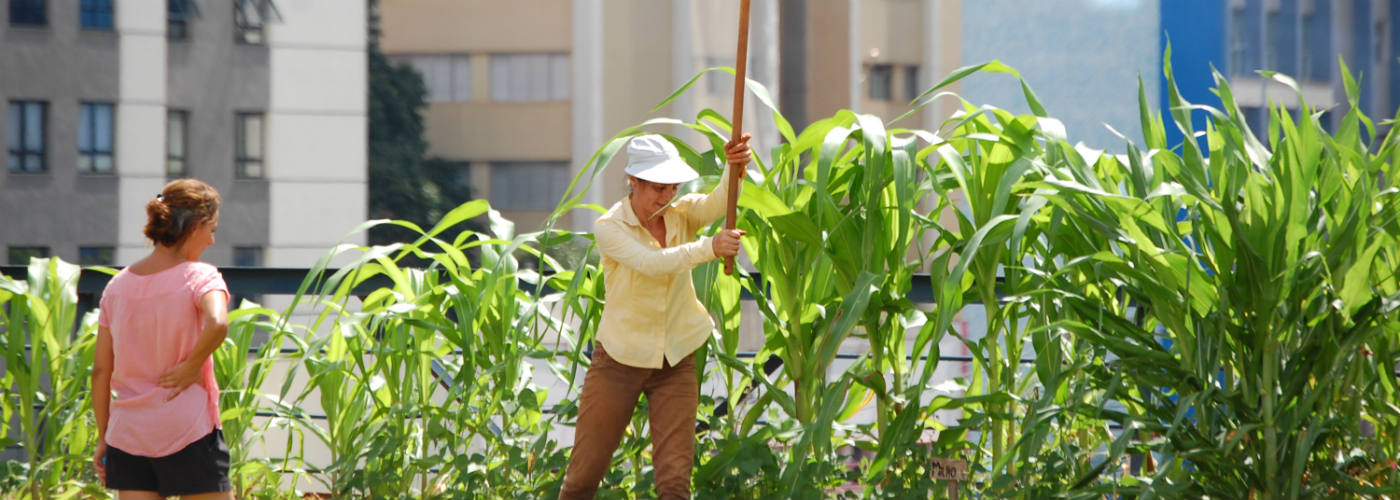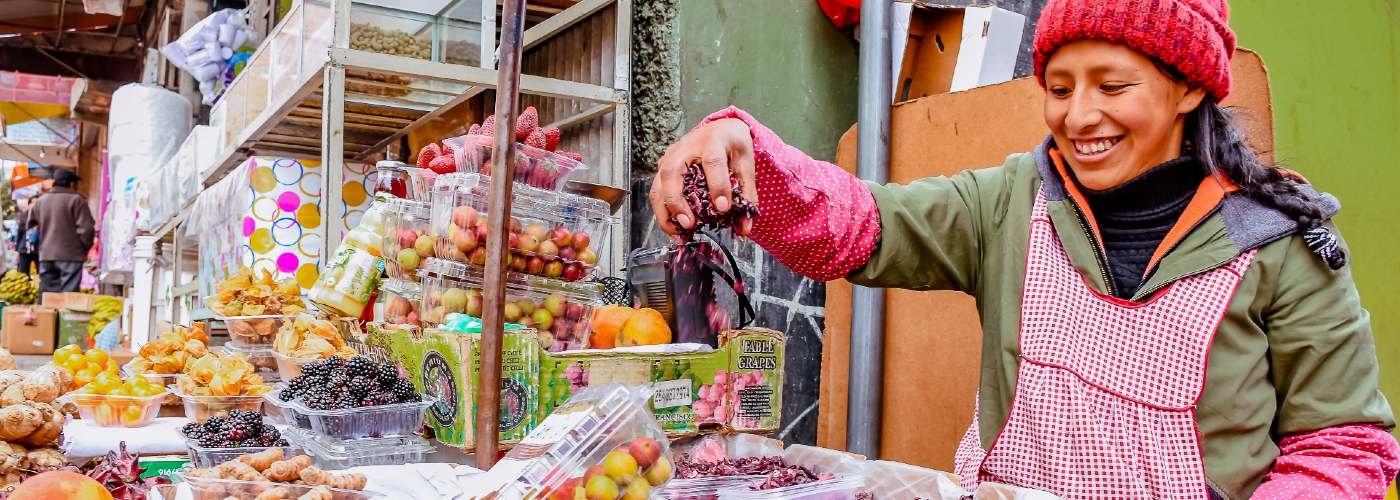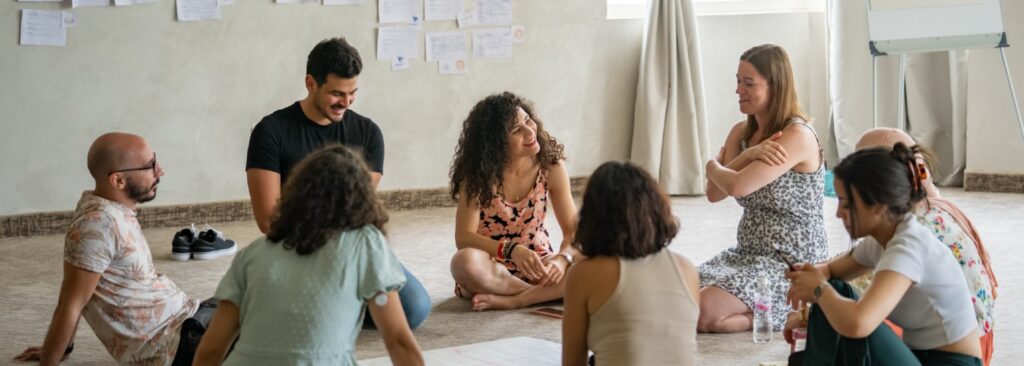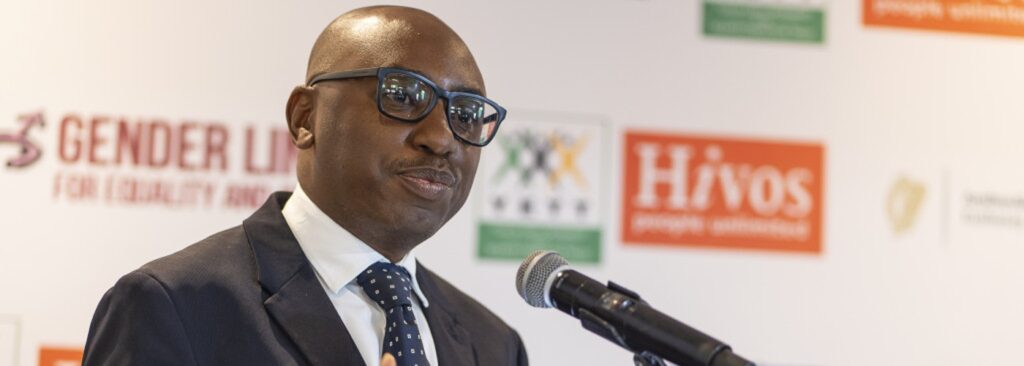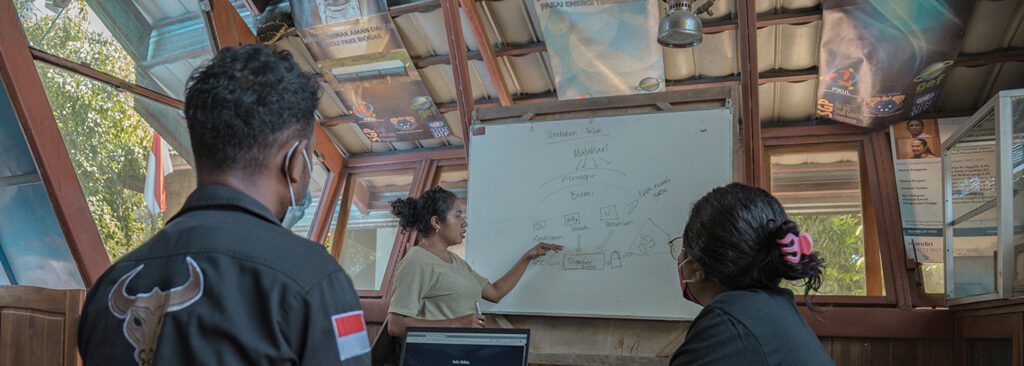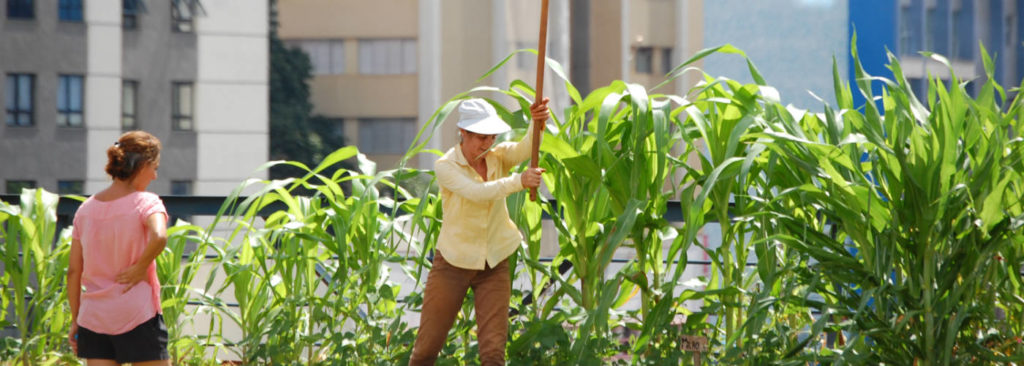Fast and fair: Building climate justice in food systems
October 18, 2022
The world is changing fast. From climate, to pandemics, to inter-state conflict. Numerous crises at the local, national and global scale are the consequences of the disproportionate and unjust use of our planet’s resources, the unequal distribution of power, and the desire to put profits, economic growth and the interests of the wealthy ahead of human rights. The result is that vulnerable and low-income populations, who are the least responsible for these crises, suffer the most and pay the highest costs. This includes the impacts on food systems, where the livelihoods, assets, and food security of marginalized people are most at risk. There is an urgent need for climate justice in food systems.
Food systems transformation must be fast and fair. It must start with the people, and the places where the majority now live – the cities.
RUAF, Hivos and partners will present practical experiences of building climate justice in urban food systems at the 8th MUFPP Global Forum, taking place on 17, 18 and 19 October 2022 in Rio de Janeiro, Brazil. It is evident that there can be no solution without a bold and clear plan that includes all stakeholders, including marginalized and vulnerable populations, in all stages of diagnosis, action planning, and implementation.
Putting people first
Making cities liveable for all, while creating efficient and inclusive urban food systems to adapt to and mitigate the shocks of the climate crisis, is one of the greatest challenges of the 21st century.
When it comes to climate justice, people must be at the center of policy development and decision-making. This requires a participatory process that involves changing narratives and improving the understanding of the challenge; a multi-stakeholder collaboration to ensure equitable and just transformation; and an active, empowered participation of those most affected, including women, Indigenous peoples, and people living in poverty.
Climate-resilient food systems
In addition to our work on climate justice and stakeholder participation, RUAF partners are engaged in projects to build climate resilience in urban and city region food systems.
Recognizing this urgent need to include different actors, RUAF collaborates with the CGIAR research initiative on ‘Resilient Cities through Sustainable Urban and Peri-urban Agri-food Systems’, which aims to provide science and research inputs to improve food security and diets, economic opportunities, and environmental health of low-income urban populations. In addition, RUAF and FAO work on the City Region Food Systems (CRFS) program, which supports local governments in assessing risks and responding to multiple shocks and stresses in the food system to strengthen resilience. Through these initiatives, RUAF promotes multi-level and participatory multi-stakeholder processes and shares effective responses and measures to build resilience in CRFS.
Working with indicators to track global progress
To develop sustainable, inclusive, and resilient food systems, it is crucial to step-up action and support cities in assessing, monitoring and measuring the impacts of integrated food and climate policies.
The Milan Urban Food Policy Pact (MUFPP) is one way cities are working to change food systems at the local level. The Pact, signed by more than 240 cities (as of October 2022), encourages experience exchange and helps cities in addressing issues associated with ensuring access to food to urban residents. In a further step toward creating a global framework for tracking progress, RUAF, FAO and MUFPP Secretariat, with support from WLE, launched the Milan Urban Food Policy Pact (MUFPP) Monitoring Framework Handbook and Resource Pack, which sets out practical steps, simple tools, top tips for cities to select, adapt or devise indicators to measure progress of their own priorities. The Handbook and Resource pack is a crucial tool for creating more equitable, resilient and sustainable food systems.
MUFFP Global Forum
These priorities will be discussed on Wednesday October, 19 during the session “Climate Justice and Urban Food Systems Change: putting ideals into practice”. The event will explore different perspectives of climate justice, and the need for fast and fair actions to redress the balance. Presentations will be followed by a panel discussion on how the climate justice imperative is being framed in cities and within RUAF partner projects, with city officials from Freetown, Birmingham, Rosario, Dakar and Rosario.
Next, RUAF partners will give insights on how climate justice is addressed in several projects, highlighting experiences from different cities, including Quito, Lima, Nairobi, and Antananarivo, emphasizing work with key rights holders, women, youth and those in informal settlements. The session will end with a plenary discussion, including questions from the audience.
Multi-stakeholder initiatives: RUAF’s experiences improving urban food systems
Hivos’ collaboration with the RUAF Global Partnership on Sustainable Urban Agriculture and Food Systems aims to build sustainable city region food systems by connecting citizens and local entrepreneurs in multi-actor platforms.
